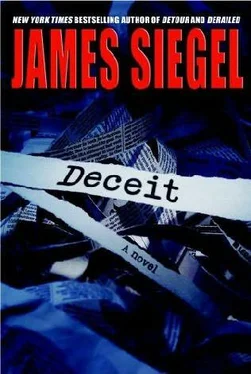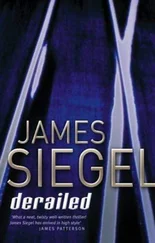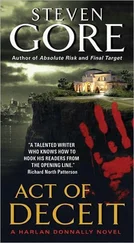They would need this knowledge, they knew.
The war might be over, but they’d simply traded one enemy for another. Japan was buckling under just fine-already pouring that nationalist zeal into economy building. Their onetime ally was a different story. The Russian Bear was in full growl, swallowing up all of Eastern Europe and poised to take the rest of it if given half a chance.
No one was under any illusions.
Hiroshima and Nagasaki were just the first two volleys in a new kind of shooting war.
It might be cold now, but it could get hot at any minute.
They needed to know what to do when the smoke cleared and all those millions of victims-because it would be millions-were cleared from the urban rubble.
They needed answers.
Most of them grew emotional calluses. It wasn’t that hard, considering they were dealing with the people who’d sucker-punched our naval fleet at Pearl Harbor. Who’d littered the Bataan Peninsula with American corpses.
If they were a little cold and calculating about how they dealt with them, these survivors-if they began to treat them like squealing, screeching guinea pigs and not still-living, breathing human beings-it was understandable. It was for the national good. It was for the furthering of science.
The experimenting might look un-American to some.
But not when you looked at the big picture. Not then.
They deserved medals.
From their research would come the blueprint, the textbook on postnuclear survival.
Even when the doctors finally came home, even when the Hiroshima program officially ended, the experiments didn’t.
They continued.
Special orders went through special channels to special places.
This time the guinea pigs weren’t Jap survivors of a far-off blast.
No.
This time they were closer to home.
Emotionally disturbed boys at a children’s home in Rochester, for example.
The doctors formed a boys’ “science club” there.
All the boys wanted in.
After all, there was nothing much to do in that place but sit around and make baskets. And some of the boys weren’t really emotionally disturbed. No. They’d been dumped there by parents who couldn’t afford to take care of them. In the science club, they got to go to baseball games. They were given real hardballs and leather gloves and baseball caps.
They were given something else.
Oatmeal laced with radioactive isotopes.
Every morning for breakfast.
Every boy had to finish his oatmeal if he wanted to stay in the club. No exceptions.
And there were the pregnant women at Vanderbilt University Hospital.
The ones urged to take a special “cocktail.”
What’s in it? the women would ask, women in their first, fifth, ninth months of pregnancy.
Vitamins, they were told. Vitamins to make you and your baby stronger.
There weren’t any vitamins in the cocktails.
There was radioactivity. Headed straight for their uteruses.
Drink up.
And then there was a certain hospital out west.
Marymount Central.
Where pure plutonium was pumped into the veins of 320 selected patients.
Some of them had cancer.
Some of them didn’t.
Some of them were terminal.
Most of them weren’t.
It didn’t matter.
In the end, they were all doomed.
By then, the army doctors had been subsumed into the fledgling Atomic Energy Commission, later itself subsumed into the Department of Energy. The DOE whose director would years later publicly apologize for these “sick acts.” But the doctors would keep the moniker they were given during the war as a secret badge of honor. Even fifty years later, it would be how they defined themselves. By three numbers.
The 499th they’d answer, when asked in what regiment they’d served.
The 499th medical battalion.
I took an elevator to the top floor.
The one with bars on the windows.
As soon as the elevator door opened, I could feel them. There was an air of palpable constriction. It suddenly felt harder to breathe; I was walking with ankle weights attached to me.
Maybe it was the thick metal door off the lobby-though lobby was overdoing it, since the room seemed to serve no discernable purpose. There were no chairs and no reception desk, just an empty space between the elevator and locked door. There was an intercom on the wall.
I buzzed it.
A face materialized through the metal grill in the door.
I know. It reads like a half-remembered dream. It felt that way. It was after midnight; I’d left Dennis in a morphine-induced sleep floors below.
There was that incessant murmuring, a whispery tower of babble seeping through the locked door-everyone speaking separate languages that were decipherable only to themselves.
“Yeah?”
The voice belonged to the black man staring at me through the meshed grill. Mostly I could see the whites of his eyes.
“I’m Detective Wolfe,” I said, flashing my wallet at the door and hoping the mesh screen would make it as indecipherable as his face.
“Okay?”
“An ex-patient was brought in today. He was attacked at a gas station down the road-you probably heard about it?”
“Nope.”
“He was a patient on the psych ward. Dennis Flaherty?”
“Oh, yeah. Dennis. I heard something ’bout that. Cut his eyes out, huh?”
“His tongue.”
“Okay.”
“He’s in pretty bad shape. Whoever did it killed the gas-station clerk, too.”
“Uh-huh. Yeah.”
“I’d like to take a look around if that’s okay.”
“ Here ?”
“That’s right.”
“What for?”
“Major DeCola said it’d be okay.”
“Major who ?”
“DeCola.”
“He’s a doc down on…?”
“Surgeon.”
“Right. He ain’t a psych . So-”
“He said it’d be okay.”
“Yeah. Well. I’m just sayin’…”
“He’s a major,” I said.
“Shit. Okay.”
The magic words.
The door opened electronically-at least, it was supposed to. The black man, who introduced himself as Rainey , had to push it open himself.
“Everything’s fucking falling apart here,” Rainey said.
Maybe it hadn’t been that hard for Dennis to run away, I thought. Maybe all he’d had to do was push open the door and scram.
There was a small desk on this side of the door. Rainey’s, I guessed. A Styrofoam cup sat on an open newspaper as neatly arranged as a place mat. A metal bridge chair sat on the other side of the desk.
The room itself was about the size of a two-stall bathroom. It smelled like one. There was the odor of stale urine and male sweat. Of confinement.
“You knew Dennis?” I asked him.
“You don’t know anybody here, man. You don’t want to know anybody. Most of them don’t know which way is up.”
“He knew which way was out, though, didn’t he?”
Rainey chuckled. “Sure. Okay. Dennis flew the coop.”
“He stuffed a lot of meds in his pocket before he left, too. What floor’s the dispensary on?”
“Not this one.”
There was a door opposite the door I’d walked through. The door to the actual wards, I guessed. The looney bin.
“Can I see Dennis’s room?”
“It’s just a bed, man.”
“Right. Show me anyway.”
He shrugged, scratched his head, said: “You’re the boss.”
He fumbled for a key and fitted it into the lock; the door swung open.
I’d expected something worse.
It looked like a dormitory. A dormitory in an old boys’ school-okay, an old, old boys’ school. But still. A regular-looking hallway led to regular doors that opened onto regular rooms with regular rows of cots.
Читать дальше












